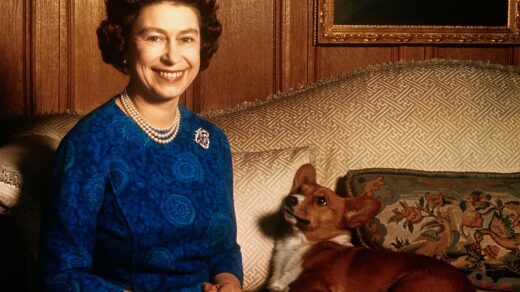The Wow That Is Director Zackary Drucker
Author: John Casey

One of the reasons I love this job of writing for The Advocate so much is that I get to talk to lots of extraordinary people. Usually, someone my age isn’t presented with many opportunities to get acquainted with and learn from new and fascinating individuals.
Director Zackary Drucker is surely one of those people. I knew her even before I knew her. Let me explain. Two years ago, I watched with great intent the HBO miniseries The Lady and the Dale. It’s the warts-and-all story of Liz Carmichael, who developed and marketed a three-wheeled car (the Dale) back in the 1970s that was fuel-efficient and quite different from other vehicles on the market.
She had a stunning rise — and a rapid and stunning fall. Carmichael was truly a pioneer, not only with the concept of her automobile but as a trans businesswoman back during a time and place when trans people were still looked at as less than normal. I vaguely remember Carmichael’s story, and I especially remember the car. There were a lot of funky things going on in the ‘70s, and the Dale was surely one of them.
If you have not seen the docuseries, it’s a must-watch and a riveting character study of Carmichael.
I had forgotten about the miniseries, as we tend to do with an overload of streaming programs, until I saw Queenmaker: The Making of an It Girl on Hulu. The story begins when an obscure and anonymous blogger had the socialites of New York City tripping over themselves to be covered on the blog Park Avenue Peerage.
Again, since I was here during that time period, the early 2000s, I vividly recall this happening, and I had somewhat of a front-row seat, having known one of the players in this incredibly overt drama. Thankfully, the real star of the docuseries is someone much more layered and thought-provoking.
Spoiler alert: The star, a.k.a. the blogger, turns out to be an Illinois college student — far removed from the confines of Manhattan. What an irony. The story behind that blogger is spellbinding. She turns out to be a trans woman, Morgan Olivia Rose, who goes on to be a sex worker. Like Carmichael, she faced lots of adversity, and if you compare the two, while they took different paths in life, they had remarkably similar characteristics.
I wanted to talk to the director of Queenmaker because the series was just that good, and I discovered it was Drucker, who also did The Lady and the Dale. In addition, she is the co-director of The Stroll, an HBO documentary about transgender sex workers in New York City’s Meatpacking District in the 1990s — another must-see.
When I saw this trifecta, I had a feeling I was going to get the opportunity to meet and speak with someone very special.
Drucker is warm and engaging. She is also whip-smart and offers unbridled introspection, coupled with a steely perspective on life, her work, and the subjects she documents.
“Nick Cammilleri, the co-director of Lady, had been researching Carmichael for about 10 years, and then I came along and helped take the helm and started to penetrate Liz’s family and friends. I had worked with the Duplass brothers [Jay and Mark] on Transparent, so they came along and produced,” Drucker said, explaining how she got involved with the project.
“It was an honor and a labor of love working on that,” Drucker added. “Liz Carmichael is impossible to ignore, and I was channeling her the entire time. When I was deep into editing, each night I dreamed about her life and story. I’m so glad you loved it. I think we were able to capture her indomitable spirit and dignity.”
I agreed with Drucker about Carmichael, and as for Morgan, I thought her story was so sad. That’s when she stopped me. “Really, you felt it was sad? Well, trans life is not easy for any of us. And for Morgan as well as Liz, their stories were about all the pain they experienced, which is the same as the layers of experience for all of us in the trans community. For Morgan in particular, it takes a lot of courage to put her story out there.”
Drucker added that she doesn’t feel a responsibility to tell stories that are always uplifting. “Sure, others might try to sanitize the trans story by making it more palatable and acceptable, but that’s not adhering to the truth. Like anyone else, we are human, complicated, contradictory, and unreliable. Trans characters, in this day and age, can be antiheroes, and there’s nothing wrong with that.”
There is a twist in Morgan’s story near the end of the series, and I asked Drucker if she expected that unexpected development. “It really surprised us what she did, but it was dynamic and exciting to see that all happen in real-time, so if you’re looking at someone’s life in that way, of course there’s going to be those unpredictable moments,” she said.
And I confessed to being wrong about Morgan’s occupation as a sex worker, which used to be about the only way for trans women to make a living, and it still is for some. “Being a sex worker is not derogatory,” Drucker said. “This is the way this woman lives her life. Others might think, Oh, she hit rock bottom, but she certainly doesn’t feel that way.”
“There’s still a stigma to sex workers and the ubiquity of trans being sex workers in films,” she continued. “That’s the story in Stroll. Years ago, there were hardly any other employment opportunities if you were living a trans life in the pre-Obama day. Now there are more economic opportunities that have been created. However, the reality of being a sex worker like Morgan still exists for many. Morgan’s experience is universal.”
I wondered if there was a common thread or throughline from Carmichael to Morgan. “Yes, as a matter of fact there is,” Drucker agreed. “And the reality is that that thread may apply to most of us who have trepidations and apprehensions about navigating the world. I’ve been living a trans life for 20 years, and it hasn’t been easy, but each year brings more normalcy. “
“For most of us, we encounter a commonality of self-preservation and reclusion that often results in not having a robust life in the outside world. It can be hard to push yourself into a public-facing life. Some are more comfortable staying at home and becoming even more regressed. And if you look at the way trans bodies are consumed by the general public, it still involves pornography and sex workers, because trans lives are forced sometimes to stay behind closed doors. That’s what happens, for example, when trans women date men. These men are sometimes closeted, so relationships are compartmentalized.”
The bottom line, according to Drucker, is that as with anyone else, there are no perfect role models or people. “We’re all flawed. We’re all self-conscious, and we all have, to some degree, a lot of work to do to be self-loving. This applies to trans people. And equally, you can’t let someone else define you and make you vulnerable to criticism. It’s crucial to maintain an anchor through all this complexity, most especially for trans people.”
Did Drucker think that this complexity plays a part in something I encounter all the time? When I bring up a transgender person or issue to people who are not familiar with anyone transgender, the first question I get usually involves something about Caitlyn Jenner. I wondered if mention of Jenner was the first reaction from people to Drucker when they find out she’s trans.
“Yes,” she said without skipping a beat. “That is interesting.” I told her that fact only dawned on me because, perhaps, the simplest, easiest way to grasp transgender identity is through Jenner because, as a public figure, she seems most relatable.
“We’re all on different channels with staggered timelines, and so many of us see ourselves living in the future,” Drucker said. “There is a resistance to us in the world as being somewhat underneath culture. Regardless of how Jenner complicates the story, for myself, I am creating my own narrative with my own work. And I’ve been blessed and entrusted to create a more constructive base of what trans life is really like, not just for the community but the general public as well. The more stories we are able to tell about other transgender women, the more opportunity we will have to own the narrative.”
Drucker admits there’s a lot of work to do. “Our story should never be about one person. We are like everyone else, and not monolithic. Having said that, the general public likes to consume stories that are about train wrecks, drama, with wealthy white people fighting and making fools of themselves as a spectator sport. We have to make sure we give voice to those who are living their normal lives and taking the high road when telling our stories.”
From Your Site Articles
Original Article on The Advocate
Author: John Casey






